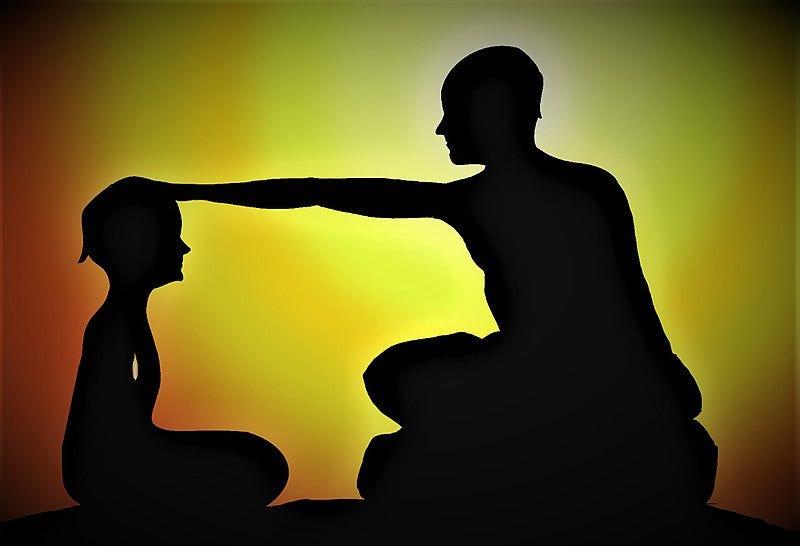Title: Astrology's Resurgence: An Examination of Its Popularity Today
Written on
Understanding the Astrology Boom
Astrology is currently experiencing a notable revival. Various platforms like apps, podcasts, and online columns are dedicated to this ancient practice. Subscription services utilize algorithms to create personalized natal charts and employ AI to generate horoscopes. Certified astrologers are finding financial success by advising individuals on personal and professional matters.
In 2018, the astrology market was valued at $2 billion. By 2021, this number skyrocketed to nearly $13 billion, with projections suggesting it could reach almost $23 billion by 2031. As the industry's worth has surged, so too has the belief in astrology; a recent YouGov poll revealed that nearly 25% of young Americans hold astrological beliefs.
As someone who has navigated the realms of science, pseudoscience, and religion throughout my life, I find this trend concerning. Many might argue that astrology is merely harmless entertainment. However, it's unsettling that influential figures base their decisions on astrological beliefs. While "a little nonsense now and then is relished by the wisest men," one must be able to distinguish between reality and fiction.
Astrology is not grounded in reality. I apologize if this statement is upsetting, but it's crucial to understand.
Evidence Against Astrology
Astrology posits that the positions of celestial bodies at one's birth can shape personality traits and life events. Yet, numerous studies have shown that astrologers consistently fail to make accurate predictions.
For instance, a 1985 study involving thirty professional astrologers from both America and Europe required them to analyze astrological charts for 116 individuals alongside three personality traits for each. The astrologers only succeeded in identifying the correct trait about one-third of the time, which is no better than random chance.
In another study from 2003, researchers evaluated the personality traits of 2000 “time twins”—people born at the same time and date. If astrology were valid, one would expect these individuals to share similar traits. However, the study found no significant personality correlations between these twins compared to those born at different times.
The Misunderstanding of Zodiac Signs
Many people believe they know their astrological sign, but they are often mistaken. The sun travels along a path known as the "ecliptic," which is home to twelve constellations (though technically thirteen). Over a year, the sun appears to reside within each constellation for about a month.
Due to Earth's axial wobble, the apparent positions of these signs can shift over time. For example, a person born on June 30th two millennia ago would have been classified as a Cancer, while today, that same birth date would categorize someone as a Gemini.
This realization can be quite shocking. It’s reminiscent of stories where individuals discover unexpected results about their racial identity through DNA testing.
However, the more significant issue is that constellations are not fixed entities. As Carl Sagan noted, constellations are arbitrary groupings of stars, and their configurations change over time as stars move through the galaxy. Thus, the very basis of astrological categorization is flawed.
Astrology and Scientific Rigor
Astrology suffers from a fundamental flaw: it relies on outdated categorizations of reality without adapting to new scientific knowledge. This stasis is particularly interesting. If there were indeed a link between celestial bodies and personal traits, we would expect astrologers to incorporate new discoveries, such as Neptune, into their analyses. However, they did not infer the existence of Neptune from their astrological practices, even though scientists did so based on gravitational effects.
The Question of Certification
Some may argue that astrology is a legitimate discipline due to the existence of certification processes. The International Society for Astrological Research offers a Certification of Astrological Proficiency (ISAR CAP), which includes rigorous testing. However, the value of such certifications is debatable.
While it seems reasonable for certain professions, like heart surgeons, to undergo extensive certification, the necessity for astrologers is questionable. The process may provide a veneer of expertise that could be misleading.

The "Guru Effect" and Perception of Authority
Another reason astrologers seek certification is that it equips them with specialized terminology, lending an air of authority to their claims. Philosopher Dan Sperber refers to this phenomenon as the "guru effect." When a person speaks from a position of perceived authority, even nonsensical statements can be interpreted as profound.
Astrology's Current Appeal
Why is astrology thriving now? The decline of organized religion might be creating space for alternative spiritual practices. My Jesuit education included lessons on debunking pseudosciences, including astrology, which led me to adopt a skeptical worldview.
However, there is more at play. Traditional religions often offer introspective opportunities through prayer and meditation, paralleling the reflective nature of astrology. Furthermore, astrology serves as a more accessible, affordable alternative to therapy for younger generations facing economic challenges.
The Role of Social Media
Social media amplifies interest in astrology. Questions like "What’s your sign?" or "What’s your Myers-Briggs type?" are popular, allowing individuals to share their results on platforms like Facebook and Instagram. This digital landscape has propelled astrology into mainstream culture.
Yet, this trend has significant implications. It can hinder critical thinking when our hobbies distract us from seeking genuine truths found in science. As Carl Sagan expressed, our desire to connect with the universe is profound; however, this connection should be rooted in reality, not superstition.
The first video titled "Giving YOU a trash horoscope reading" explores the absurdity of astrology and how it can be viewed as entertainment rather than a serious belief system.
The second video, "Destroying Astrology in Less Than 10 Minutes!!," presents a critical examination of astrological claims and their lack of scientific basis.
In conclusion, while astrology may be a fun pastime, it is essential to approach it with skepticism and a critical mindset.